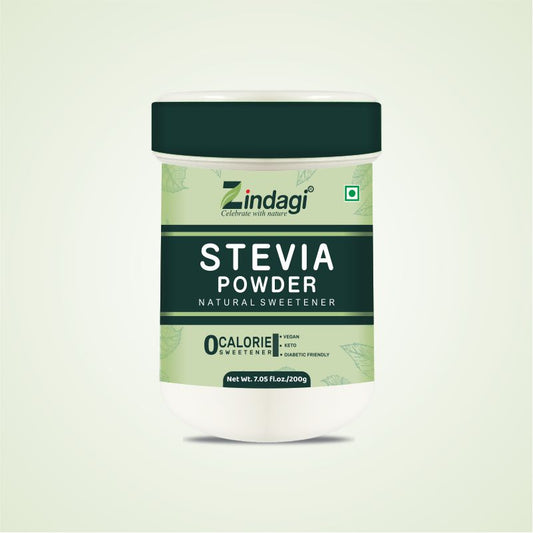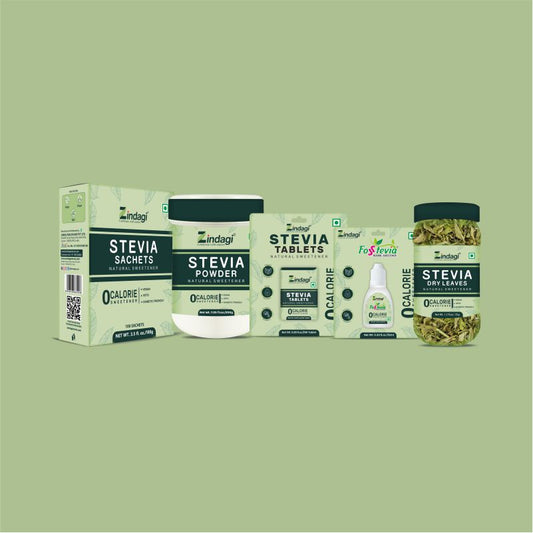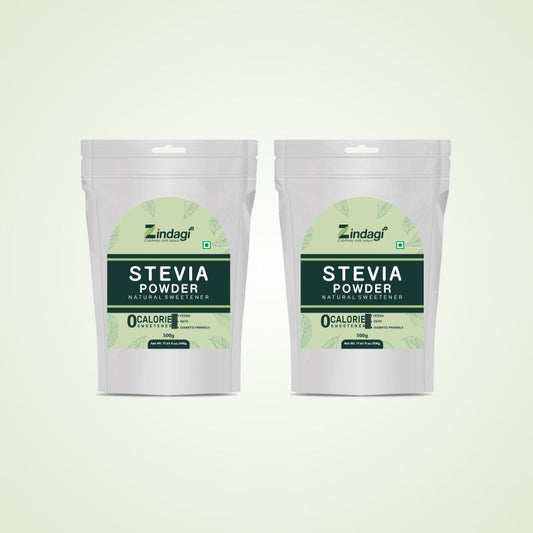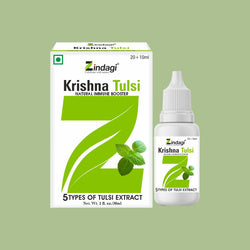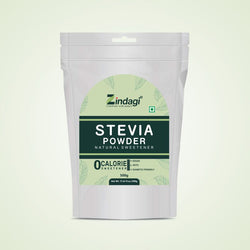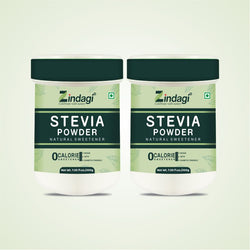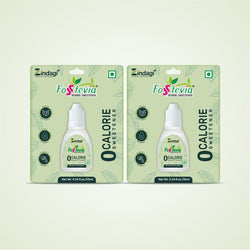As there are increasingly growing health concerns about sugar consumption, Stevia is being turned to as a natural sweetener. But still, one gigantic question remains: Can Stevia be used daily?
Stevia has been marketed as a healthy alternative to sugar, with zero calories, no blood sugar elevation, and even health benefits. But is it truly safe to use in the long term? How much Stevia is safe to consume each day? And are there any secret side effects?
In this research-based guide, we'll break down everything you want to know about Stevia daily intake, how it stacks up against sugar and artificial sweeteners, and if it really is a healthy option for gut health, diabetes, and weight loss.
Let's get started!
What Is Stevia? A Quick Overview
Stevia is derived from the leaves of the plant Stevia rebaudiana, originally from South America. Its sweetness is a result of steviol glycosides, which are 200-300 times sweeter than sugar but contain no calories and have no effect on blood sugar.
Forms of Stevia
- Pure Stevia Extract (Reb-A) – The FDA-approved form used in most commercial products.
- Stevia Blends – Mixed with erythritol, monk fruit, or other sweeteners.
- Raw Stevia Leaves – Unprocessed but not FDA-approved for commercial use.
Stevia is widely used in beverages, baked goods, and even salad dressings, but is it safe for daily consumption? Keep reading!
Is Stevia Safe for Daily Use?

FDA Approval & Recommended Daily Intake
The FDA has cleared Stevia extracts such as Rebaudioside A (Reb-A) for human consumption. The acceptable daily intake (ADI) is 4 mg/kg of body weight.
What does this translate to in everyday life?
If you weigh 70 kg (154 lbs), you can safely ingest up to 280 mg of Stevia per day.
This is equivalent to 5-6 packets of Stevia per day, depending on the brand.
Therefore, YES, Stevia is safe to use every day - if you don't exceed the suggested guidelines.
Stevia vs. Sugar: Which One Is Better for Daily Use?
|
Features |
Stevia |
Sugar |
|
Calories |
0 kcal |
16 kcal per teaspoon |
|
Blood Sugar Impact |
No spikes |
Causes spikes |
|
Dental Health |
No tooth decay |
Causes cavities |
|
Diabetic Friendly |
Yes |
No |
|
Weight Gain Risk |
None |
High |
Why Stevia Wins: It offers sweetness without the calories, sugar crashes, or dental issues.
Why Sugar Fails: It contributes to obesity, diabetes, and tooth decay—making it a bad choice for daily consumption.
Verdict: If you’re looking for a daily sweetener, Stevia is the healthier option.
Stevia vs. Artificial Sweeteners: Which Is Safer?
Some people prefer artificial sweeteners like aspartame, sucralose, or saccharin, but are they really safe?
|
Features |
Stevia |
Artificial Sweeteners |
|
Sources |
Natural |
Synthetic (lab-made) |
|
Calories |
0 |
0 |
|
Gut Health |
May support good bacteria |
Some disrupt gut flora |
|
FDA Approved |
Yes |
Yes (but controversial) |
|
Long-term safety |
Considered safe |
Linked to health risks |
Why Stevia Wins: It is a natural sweetener with no recorded long-term risks.
Why Artificial Sweeteners Are Risky: Studies show they can change gut bacteria, make people crave more of them, and cause metabolic issues.
Verdict: If you want a safe, natural, and gut-friendly option, Stevia is the better choice for everyday consumption.
Health Benefits of Stevia: More Than Just a Sweetener
- Facilitates Weight Loss
o Zero-calories assist in overall calorie reduction.
o Reduces sugar craving, allowing easier avoidance of junk food.
- Diabetic Friendly
o Does not increase blood glucose levels.
o May improve insulin sensitivity to help diabetics control the condition.
- Could be Good for the Gut
o In contrast to artificial sweeteners, Stevia is non-toxic to gut bacteria.
o It may encourage growth of beneficial bacteria.
- Good for Heart Health
o Can help reduce blood pressure in individuals with hypertension.
o There is some evidence that it can reduce cholesterol levels.
Does Stevia Have Any Side Effects?
Although Stevia is safe in general, high intake can cause minor problems in some individuals:
- Digestive Upset – It can lead to bloating in excessive amounts.
- Mild Allergic Reactions – Uncommon but can occur in individuals allergic to plant in the Asteraceae family (like ragweed).
- Lowers Blood Pressure – Could be a concern for people with already low BP.
Solution? Stick to moderate consumption, and you’ll be fine!
Best Ways to Consume Stevia Daily
Looking for fun uses for Stevia? Try these:

Conclusion
Yes, Stevia is safe to be used daily and may be an excellent substitute for sugar and artificial sweeteners when used moderately. With no calories, no effect on blood sugar, and possible health benefits, it helps with weight management, diabetic control, and even gastrointestinal health. Although excessive use may lead to slight digestive unease or decreased blood pressure, adherence to dosage ensures it is a safe and efficient sweetener for daily consumption. Whether you're putting it in coffee, baking, or blended drinks, Stevia lets you indulge in sweetness without exposing yourself to the health dangers of sugar. Go ahead—switch to Stevia and lead a naturally sweet, healthier life!
FAQs: Everything You Need to Know About Daily Stevia Use
1. Can I use Stevia in my coffee every day?
Absolutely! Stevia is a great sugar alternative for daily coffee drinking.
2. What happens if you consume Stevia daily?
Nothing bad! It’s safe and may even support weight loss and blood sugar control.
3. Is Stevia healthier than sugar?
Yes! It has zero calories, no blood sugar impact, and is better for your teeth and metabolism.
4. Does Stevia have any side effects?
Only if you consume too much—which may cause minor digestive issues.
5. Is Stevia better than artificial sweeteners?
Yes! It’s natural and doesn’t disrupt gut health like some artificial sweeteners.
6. How much Stevia is too much?
More than 4 mg per kg of body weight per day may cause side effects.


